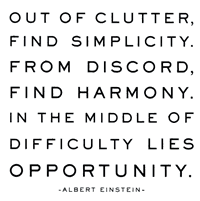The Herald newspaper, Mugabe’s daily distorter, continues to publish articles suggesting that Zanu PF and the MDC are either open to, or engaged in “talks” with the current illegitimate government of Zimbabwe. I’m hoping that the leadership of the MDC isn’t naively attaching any hope or investing any energy in this particular area. As Michela Wrong rightly points out in the article below, “Zanu-PF and the MDC have been negotiating for years without any noticeable dilution of Mugabe’s powers.” What has been clearly evident over the last several years has been Mugabe’s ability to out manoeuvre the MDC at every turn. So it is with great concern that I read of Mugabe potentially giving certain MDC politicians cabinet posts. This is appeasement, pure and simple. We need a change of government in Zimbabwe not piecemeal and convenient interim measures. The other day a friend said to me that the situation in Zimbabwe calls for an extreme, not a moderate solution. All those diplomats out there might not like her suggestion one bit, but shades of Mugabe simply cannot linger on.
Here is Michela’s article for you:
How a continent missed its moment
As the UN, EU, US and Britain all piled in to cajole or browbeat the African Union into Doing the Right Thing over Zimbabwe at the Red Sea resort of Sharm el Sheikh, I experienced a sudden déjà vu.
There was another occasion when commentators informed us that Africa’s leaders had finally lost patience with Robert Mugabe and were about to rap him across the knuckles. That would be the August 2007 meeting of the Southern African Development Community – at which Mugabe’s entrance triggered a standing ovation. Funny how we keep getting it wrong.
As this column was going to press, the AU had eventually decided to press for “a government of national unity”. A call for dialogue between Mugabe and Morgan Tsvangirai’s MDC is perfectly unobjectionable but Zanu-PF and the MDC have been negotiating for years without any noticeable dilution of Mugabe’s powers, and the sheer viciousness of the election was an unlikely harbinger of trust and compromise.
The AU had, in any case, already missed its moment. The time for Mugabe’s African brothers to speak forcefully was in March, when Tsvangirai won the first round of the election and officials sat on the results for five weeks. Their silence, urged on them by South Africa’s president, Thabo Mbeki, encouraged Mugabe to wage a rearguard action. Zimbabweans paid a bloody price.
But what did the international community really expect of the AU? Any organisation that includes among its elder statesmen Egypt’s Hosni Mubarak (27 years at the helm), Gabon’s Omar Bongo (41 years) and Equatorial Guinea’s Teodoro Obiang (a modest 29) will have problems lecturing members on the merits of democracy, as Mugabe himself pointed out. Exactly which recent elections could they have held up as models? Kenya’s? Nigeria’s? Ethiopia’s?
Then there’s the mindset. The Organisation of African Unity, dubbed “the dictators’ club”, was consigned to history back in 2002, its members’ knee-jerk tendency to attribute their woes exclusively to colonialism, apartheid and Cold War interference supposedly buried with the title. Thanks to a generation of progressive “Renaissance” leaders, announced Mbeki, an invigorated institution would in future deliver “African solutions to African problems”.
The continent would still need western financial and technical help, of course, but the world should no longer assume Africa was incapable of policing itself. A key ingredient would be the African Peer Review Mechanism, which catered for governments to be assessed frankly by their counterparts. Six years on, Uganda’s Yoweri Museveni, Eritrea’s Isaias Afewerki and Ethiopia’s Meles Zenawi no longer look like enlightened Renaissance leaders. Or rather, theirs is the Renaissance of the Borgias and Machiavelli, not that of the Medicis and Galileo.
On the policing front, it is true that Nelson Mandela managed to negotiate a peace deal between rebels and the government in Burundi, and that an AU force successfully snuffed out a separatist movement in the Comoro Islands. But it took a British military operation to stop civil war in Sierra Leone and Somalia. AU forces have proved little more than token presences, short of equipment, manpower and political backing.
During Kenya’s election crisis in December, what was striking was the ruling party’s open contempt for Archbishop Desmond Tutu and Ghana’s president, John Kufuor, two eminent Africans who flew in to mediate. It was only when the British and US governments told President Mwai Kibaki that travel bans had been drawn up and asset freezes were being prepared that it stepped back from the brink.
Zimbabwe tops the list of failures. The classic explanations for African leaders’ long indulgence of Mugabe – respect for an elder and former liberation guerrilla, irritation at being lectured by the west, a preference for quiet diplomacy – lost most of their force in the dreadful run-up to the second poll. The facelift has slipped, leaving the AU today bearing a depressing resemblance to its predecessor.
Mbeki’s grand project has been sabotaged by his inability to view events on the continent outside a narrow racial prism, and by his refusal, having publicly adopted a position, to be seen to backtrack.
As the South African president was the man who first championed the notion of “African solutions to African problems” with such passion, it is fitting he should now bear the blame for discrediting it in the eyes of the world.










